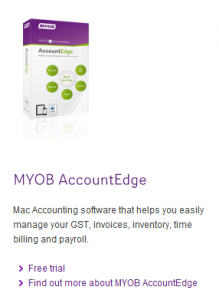
When we moved our training materials online, we developed our own learning management system, a software application that administers our MYOB training course, small business management course and all of our other online training courses.
Deliver Your Company Training Material Online – Work Health and Safety
But an opportunity exists for small to medium-sized businesses to deliver their company training material online, using EzyLearn’s learning management system — this is particularly useful for work health and safety (WHS) training.
Now that Australia’s WHS laws have changed, there’s a renewed push for businesses to be vigilant when it comes to workplace safety. Harsher punishments for business owners found to be in breach of the WHS Act 2011 now includes fines of up to $3 million per organisation and $600,000 or 5 years imprisonment per person, per breach.
The changes follow a rash of litigation across the country, where companies have been prosecuted for not ensuring that contractors and sub-contractors working on their premises have been made aware of all the potential risks and hazards associated with carrying out work on their premises.
Under the Act, a business owner can be prosecuted based on what they can be reasonably expected to know in relation to work health and safety risks. This means that, if a contractor carrying out welding on the premises of a business is injured, the business owner can be prosecuted because it is reasonable to expect the business owner to know that carrying out welding near flammable gases is hazardous.
Contractor and Sub-Contractor Liability
The move to include contractors and sub-contractors carrying out work for, or on behalf of, a business is one of the key changes to the WHS Act 2011, which was introduced in January 2012, and replaces the previous OH&S Act 1991. This presents a number of potential areas of risk for business owners who retain the services of contractors, and even remote, home-based workers.
In a landmark ruling in 2011, the Administrative Appeals Tribunal in Queensland awarded a Telstra employee legal and medical costs after she slipped and fell down the stairs twice while working from her Brisbane home.
The tribunal’s ruling has effectively extended the employer’s liability beyond what they traditionally thought was reasonable, to include the unknowns of an employee’s home. As such, for small business owners employing or retaining the services of home-based workers, making certain you have the correct WHS procedures and training in place should be a priority.
***
Using EzyLearn’s learning management system to deliver your company’s WHS training materials allows your staff, contractors or remote workers to access the content regardless of where they’re based, so you have peace of mind in knowing that they’ve been made properly aware of any risks or hazards relating to their work — and their workplace.
If you would like to know more about how EzyLearn’s learning management system works, contact us.


























